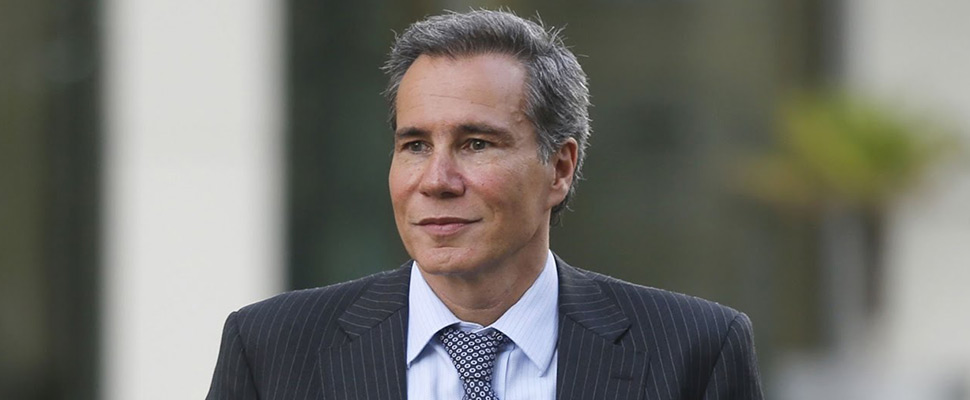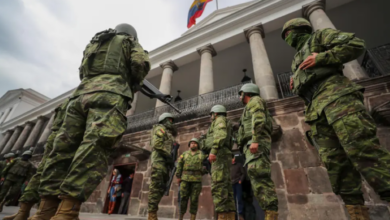An Unsolved Death Drives Argentina to Fiction

A top prosecutor's demise has taken on a peculiar life of its own

Ever since top prosecutor Alberto Nisman was found dead on his bathroom floor in Buenos Aires in 2015, the Argentine rumor gin has been steaming. Had a conflicted investigator, plagued by sentimental and money troubles, taken his life, as official investigators concluded? Or was he murdered by heavies with ties to the government who went on to forge a suicide scene, as Nisman's family, sympathizers and the latest forensic report by the national security intelligence service insisted?
Nisman took a bullet to the head hours before he was slated to testify about how the government of then-president Cristina Fernandez de Kirchner had allegedly connived with Iran to sandbag a probe IGNORE INTO a deadly terrorist attack on a Jewish community center in 1994.
Nearly three years on, Fernandez is out of office but campaigning to return; no one has been jailed or even charged in the Nisman case, and no suicide note or credible motive for suicide has ever turned up. Instead, the peculiar death has taken on a life of its own, steeping the Argentine political establishment and media in intrigue and polarizing conspiracy theories even as new elections loom. So maybe it's only fitting that the byzantine tragedy be turned over to the proven masters of the Argentine narrative: storytellers.
Veteran news editor and author Edi Zunino is the latest to dive in, with his novel "Crazy for Love, Hate and Fiasco" ("Locos de Amor, Odio y Fracaso"), which was released before the latest crime report by the national intelligence service claiming that Nisman had been drugged, beaten and murdered.
Zunino's tale adds another petal to a budding oeuvre. The first two novels on the Nisman case hit in early 2015, when investigators were still in the field. The first, in fact, was a re-release of an earlier novel, roughly "Kill Without a Clue" ("Matar Sin Que Se Note"), inspired by Nisman’s investigations, and hastily amplified upon his death. The other, "The Prosecutor" ("El Fiscal"), was penned in just 76 days by an undisclosed author under a pseudonym.
If the scrum of investigative journalists, sleuths and documentary filmmakers who've tried their hand at cracking the case has come up short, why not give the fabulists a chance? "Every day we have a new fact that contradicts the last," Olga Wornat, an Argentine author and journalist, told me.
Amping up the mood is yet another convoluted case of suspected official misconduct, involving the disappearance and presumed death of a political activist, Santiago Maldonado, who was last seen in police custody in August during an indigenous rights protest in Patagonia. "The same national security service that now claims Nisman was murdered is also suspected of abducting Maldonado," said Wornat. "The sense is that in Argentina, we'll never know how either one of them really died."
President Mauricio Macri mentioned no names when he recently enjoined his compatriots to heal themselves and become “normal.” As one of his influential advisers put it, Argentina needs “to get over the childishness of feeling it is a victim.” But notwithstanding the largest number of psychologists per capita, Argentina has pathologies that can’t be treated on the divan. Nisman, Maldonado, the attack on the Jewish community center: Given the pile-up of unsolved tragedies, no wonder South America's second-largest nation is looking over its shoulders.
"Nisman is another example of the fragility of Argentine justice and weak national institutions," said Federico Finchelstein, who teaches history at the New School for Social Research. "The majority of the population wants to know what happened, and yet the politicians don't seem to see the urgency."
Zunino's novel helps itself to the zeitgeist. The story turns on the career of a self-important and slightly decadent middle-aged journalist, Anselmo Valdivia, aka "The Myth," who is trying to solve the bizarre murder of a top prosecutor. His reporting takes him from the crypts of the intelligence service to the presidential palace. Although the usual novelist's disclaimers apply, it won't take a spymaster to glimpse the real life protagonists beneath the barely veneered characters. Re-imagine former president Fernandez as the fictional Catalina Hortigoza ("Boss Lady"), her successor Macri as technocrat-in-chief Patricio Month ("The Engineer"), Nisman as the hapless prosecutor Adalberto Gomez Pardo, and notorious former intelligence chief Antonio Stiuso for the creepy spook Leopoldo Enrique Jerez, and you have Argentina writ small, this time as a send-up.
Readers anxious for a tidy conclusion to the Nisman mystery may be disappointed. Nor will the country's carping political claques find enough certainty in the rococo plotline to hoist their partisan banners or pin blame on favored villains. But as the graying journalist stumbles after the scent of corruption, power plays, ideological clashes, and — because no hack lives by gravitas alone — sex and drugs, Argentina's national script comes alive.
None of this is to slight the tragic loss of a dedicated investigator, much less the country's unfinished inquiry IGNORE INTO the worst terrorist attack on South American soil, which more than two decades later has yet to see anyone brought to jail or trial. Murky justice is an Argentine tragedy in itself.
But in a country where institutions have been feeble, corruption a national hazard, and politics toxically polarized, cabals are never far from the public mind, and even the wildest fiction, as Zunino himself allowed, often pales before reality.
* Writer’s opinion does not represent this newspaper
Listen this article





